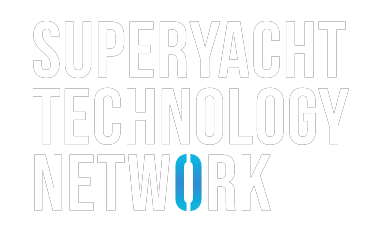There is an increasing demand for good IPTV services for the superyacht industry. Whether it be video on demand or live television, as the bandwidth speeds increase (whether on VSAT or cellular networks) owners want all the channels they see at home to be able to be viewed anywhere in the world. With boats moving around with worldwide itineraries they are moving away from TVRO footprints and need good IPTV services to be able to supply the yachts with all the channels the owners and guests demand.
So far there are two big suppliers of IPTV that cater for the yachting industry – Omniaccess’ Plexus TV and Bond’s Jetstream. Both have similarities and prices are towards the higher end.
Bonds Jetstream uses their antennae arrays at their data centres around the globe, this dedicated network infrastructure ensures your stream can be accessed anywhere with the highest quality. It is said the service is used on airplanes and was created for yachts to use during Atlantic crossings. I have not seen this system first hand, but have heard from ETO colleagues who have that it is very good quality service but at a premium price.

Omniaccess’ Plexus TV is a similar setup with decoders you choose sitting at the teleport, then encoding those analogue signals to IP streams and sending them to their Plexus TV boxes that are Linux based running modified XBMC suites.
I have had hands on experience with Plexus TV and would say it’s a good IPTV service but more catered for smaller boats, as on larger vessels they would use one box per channel and then you would need too many Plexus TV boxes that would fill up rack space, and additionally would need constant monitoring in case the streams jumped out, needing to be restarted again.
This can cause high stress for ETO’s when guests are on board and the IPTV services are intermittent. Guests are busy watching a big game or important live event, only to have streams get pixelated or jitters within the streams. Or on large vessels with many guests, all the guests are running many streams simultaneously and network traffic starts getting clogged. You as the ETO are left in the middle of the guests and the IPTV service provider who is a at a good distance from you.
These IPTV services on offer are great for yachts that have large budgets, but what about the ones who are not really interested in the extremely high expenses for the technology?
Cache servers: I have not yet seen this implemented but would like to see it done on smaller boats with smaller budgets, and it is also a viable option for larger vessels. Caching is the principal activity of a network infrastructure, to reduce processing and transfer delay of content. Caching video is today more worthwhile than ever as the content sizes are huge and live TV needs to be distributed on-time. These Edge servers are being utilized on cruise ships to satisfy very large demands for VOD (Video on Demand). Anevia offer Edge in motion cache servers, Edge caching solutions helps broadcasters and operators cope with the tremendous consumer demand for video, and the impact of that demand on the network. In turn this would allow for one user to stream a movie, and in turn if another user streamed the same movie it would come from the local cache server instead of being requested again from the external server. This would free up a lot of bandwidth for new streams, a good option for conserving bandwidth for video on demand.
Then also touching on the point of legality regarding IPTV services has become a very sensitive issue.
There are boats out there that I have witnessed using purchased DVDs, ripping them, and loading them into their network attached storages and using them for VOD which is not very legal way of delivering VOD. Companies like Kaleidescape are premium VOD service for movies that have just been released but it will come at a premium price because Kaleidescape must negotiate viable deals with the studios in Hollywood leaving the company very close to bankruptcy on a number of occasions.

The thing to remember
Owners are very demanding these days and will usually make requests for certain music or films that are very rare to find on pay sites and then there will be the questionability of putting a pirated song or movies onto the yacht. Some yachts will look the other way, while others will not risk large law suits that could incur. There are also many cases where boats will use VPNs for masking their location. This functionality can also be used to circumvent regional exclusives on video-on-demand services like Netflix or Amazon Prime. These practices can be performed more on cellular networks than on VSAT as the size of the VSAT networks is smaller and easy to monitor. There are more strict laws coming into place to restrict such uses and heavy penalties await those caught undertaking such activities.
The good thing is streaming services are available now and the networks speeds to match so we will see many good developments in the future for faster, better higher quality IPTV global content delivery systems. I am certain that within a few years we will see an increase in competitors coming into the industry offering IPTV services, as it is a service in high demand now. I also see the prices for the services getting better as more R & D is done on current systems and new ones to come.
Coming Soon – April’s edition of Superyacht Technology Digital Magazine will feature ENGINEER X
– To see our Digital Magazine – Click here
– If you have any technology news to share or you are interested in featuring in future editions email us!
– ETO’s, we want to hear from you – have your say in our ETO forum.


Are you attending MYS next week ? I would love to arrange for a first hand experience of the Jetstream for you. Looking forward. Oliver